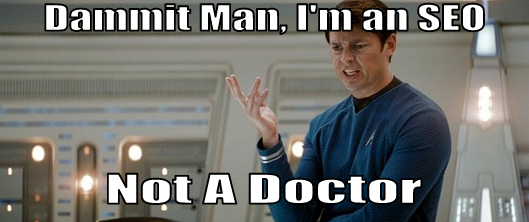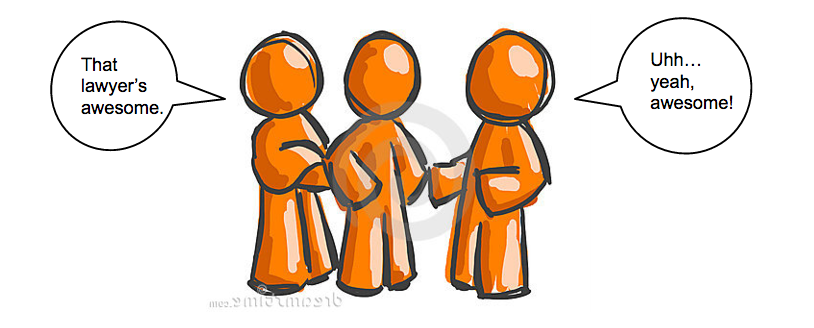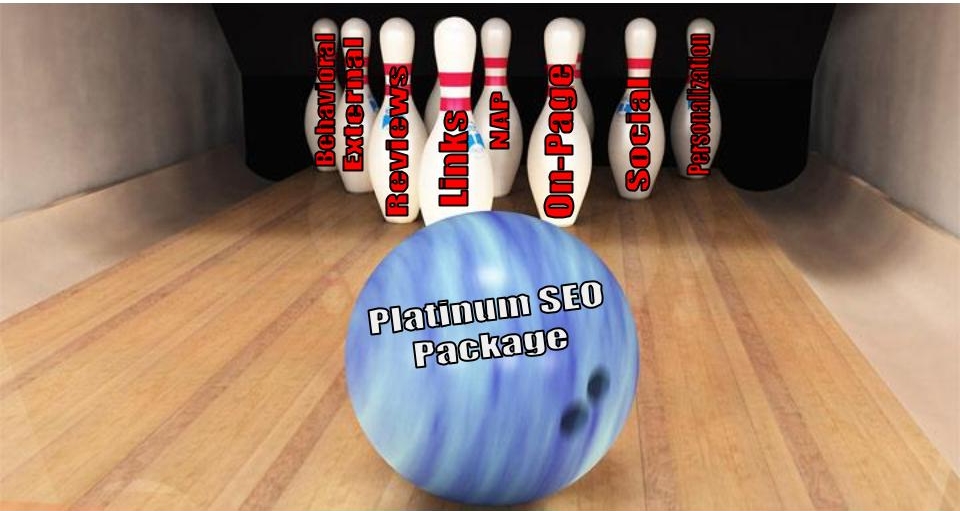
There are a million ways to say this, and at least half of them have already been made into amazing memes- usually featuring Sean Bean as Boromir from Lord of the Rings. One of the toughest things about search engines is all the moving parts. Google professes to considering over 200 ranking factors, and when hundreds of millions of competing websites are all optimizing for hundreds of ranking factors, consistently ranking on the first page is, as Sean Bean put it in The Lord of The Rings, not a simple thing. His iconic line, “One does not simply walk into Mordor” appropriately applies to securing top Google rankings – one does not simply walk onto page 1 of Google.
I know these two situations are completely unrelated, but when I try to internalize the complexity of search engine ranking, my only life-experience that compares is when my wife had our baby. See, there’s a lot of factors that go into childbirth too. Even if you can sort out the economics and mathematics of an overcomplicated insurance process, you still have to wrap your head around the implausible geometry and anatomy of childbirth.

My wife could no longer take Motrin or aspirin, we had to talk about epidurals, baby names, and the definitions of dozens of medical terms. After all that, I still felt totally unprepared for the emotional intricacies of parenthood. Then my wife talked to me about hypnobirthing. Some of the ideas are definitely weird to me, but we committed to trying it, and I can honestly say we had an amazing, relatively stress-free childbirth experience.
The key concept I took away from hypnobirthing is that lots of the stressful factors surrounding childbirth can make the whole experience unnecessarily awful. Of course those factors have to be dealt with beforehand, but during labor we thought about nothing but having a good experience. Ranking is not so different. Of course you have to deal with the 200+ ranking factors along the way, but there should be an overarching focus on the website providing a good user experience.
I know “a good user experience” is pretty vague language, so let’s clarify what that means. Chasing ranking factors can get cumbersome, and you run a serious risk of losing your focus on your customer, so let’s remove all the distractions. We know that ranking doesn’t happen in a vacuum, but in this case it’s helpful to imagine it in a vacuum anyway. Forget about the competition for a minute, and focus on your customer’s experience. No matter what your business is about, try answering these questions:
- Who is your customer?
- What are their needs?
- Does your website fill those needs?
- Do you answer your customer’s questions?
- Do you offer your customer every opportunity to accept your product or service?
- Does your message inspire confidence?
- Is your information found everywhere your customer would expect to find it?
- Is it easy for your customer to contact you?
These kinds of questions are at the core of having an online presence, and the newest search engine trend or algorithm update isn’t going to change that. So, once you’ve had a chance to look deep into the soul of your business and answer some of the important questions, you’re on your way to a long-term SEO strategy, and you’re ready to learn about search engine ranking factors. However, Google doesn’t just tell you what those ranking factors are.

Well, at least it wasn’t Sean Bean… but the aliens guy has a point. Either Google uses aliens to decide search engine results, or it relies on a complex, secretive algorithm comprised of hundreds of ranking factors. Probably the latter. In any case, we’re left to decipher the importance of different ranking factors on our own. Fortunately, Moz conducts an annual survey asking industry experts to do the deciphering for us, and the 2014 results are now available.
Moz’s “local search ranking factors” survey is pretty extensive. Experts surveyed were asked to identify the influence of ranking factors, and assign them a percentage of influence. The survey delves into organic search results, as well as Google’s pack or carousel results, but the information starts to get dense pretty quickly. Let’s narrow it down by focussing on their ‘Overall Ranking Factors.’ Want to know what you need in order to rank well?
- On-Page Signals
- Links Signals
- My Business Signals
- External Location Signals
- Review Signals
- Social Signals
- Behavioral Signals
- Personalization

Now, no one is saying “focus on these areas, and you’ll be #1.” In fact, Moz quotes Nifty Marketing’s CEO Mike Ramsey saying “you can never settle on a couple factors and only push those. Things are changing so fast that you would quickly find yourself falling behind when the next updates come around.” This is exactly why the framework of a strategy is so important. Once you’ve got that, expanding your presence online becomes about better answering those important questions by implementing ranking factors as tactics to complete your strategic goals. It becomes about inspiring confidence through personalization and social or review signals. It becomes about using business signals to make it easier for customers to contact you, and using external location and link signals to be found wherever your customer expects to find you. The concept here is to answer your bottom-line business questions with corresponding ranking factors.
Some of these connections are obvious. For example, it’s easier to buy into properly adding review signals when you remember that 9 in 10 of your customers trust online reviews as much as they would trust a personal recommendation from a friend (according to this study). Yes, Google might rank you higher this week because reviews are a ranking factor, but Social Proof is a timeless principle of psychology you can use to get new customers.

For now, do it with Facebook, Twitter, and properly marking up your customer reviews in Schema. Soon the rules will change, but your focus can stay right where it is, as long as your bottom line is a good customer experience with your site.
I also mentioned making it easier for customers to contact you. Part of that is being found anywhere your customer would expect to find you. Let’s say you’re a lawyer, and your customer uses Yellowpages.com. Will they find you there? What about the customers that are looking for a lawyer on CitySearch.com? There are endless lists of good, better, and essential places people look for your services every day. Just as importantly, what exactly will the customer find when they see your information? If Yellowpages.com says your phone number is one thing, and CitySearch.com says it’s something else, and neither of them are exactly what’s on your website, how will they contact you? If your customer gets confused by your conflicting business information, they’ll just move on to your less-confusing competitor. By design, search engines function much the same way. They’ll locate all three of those phone numbers, and it will look something like this:

Search engines are just as interested in providing a good customer experience as you are. When they detect this mess, they won’t rank you very well. You’ve got to make it easy, not just by being everywhere they expect you to be, but by being accurate everywhere you are. How you accomplish this may evolve over time, but the concept is pretty standard. You’re answering a basic business question- “Is it easy for my customers to find and contact me?”- with the power of current ranking factors like accurate business signals and citation building.
Sometimes we approach SEO like we approach bowling. The ranking factors are like pins at the end of the alley, and we throw an SEO package at them like a bowling ball, hoping it’s comprehensive enough to get them all.
This would be a pretty fun game I guess… if your site’s ability to rank wasn’t tied to your business’s ability to make money. Chasing down individual factors and signals is a good way to play fast and loose with your life’s work. Focus on a good customer experience. Ranking factors are there to help you achieve your goals, but they should never themselves be your end goal.
Devin is the Director of Product at Nifty. With over a decade at Nifty, and even more years working in the SEO and digital marketing space, Devin has done it all – from execution to high-level strategy. He is a Google Product Expert and speaks French fluently. In his spare time, Devin enjoys fishing, playing pickleball with his wife, and cheering on his kids from the sidelines.
